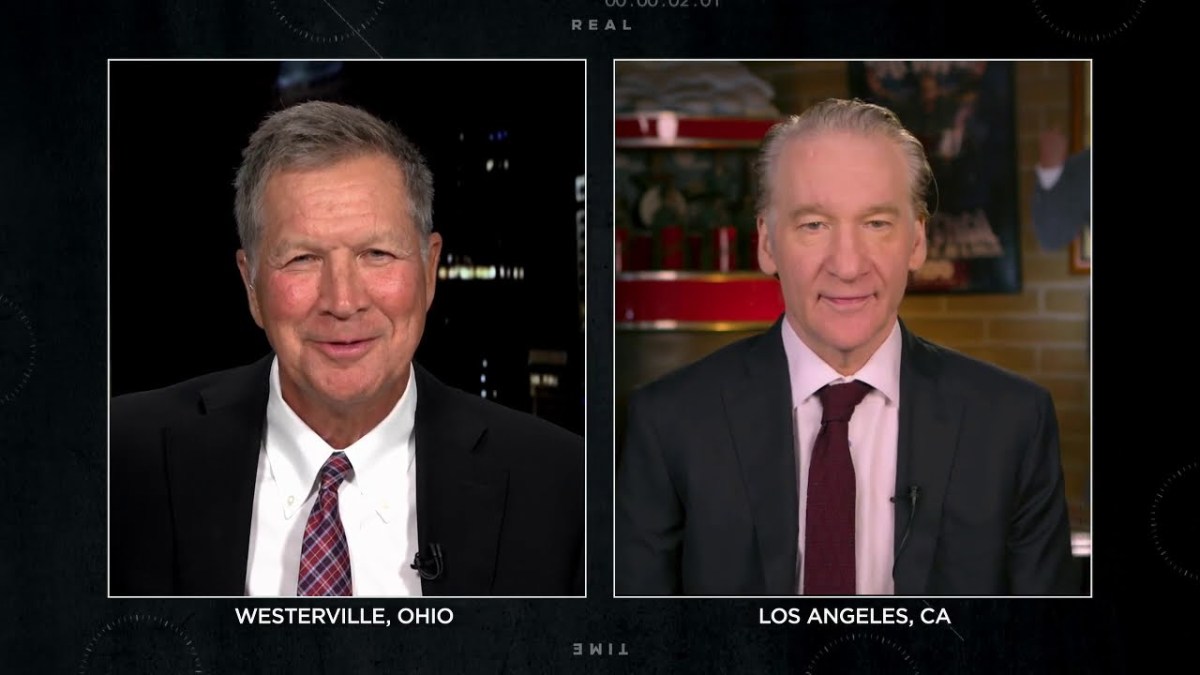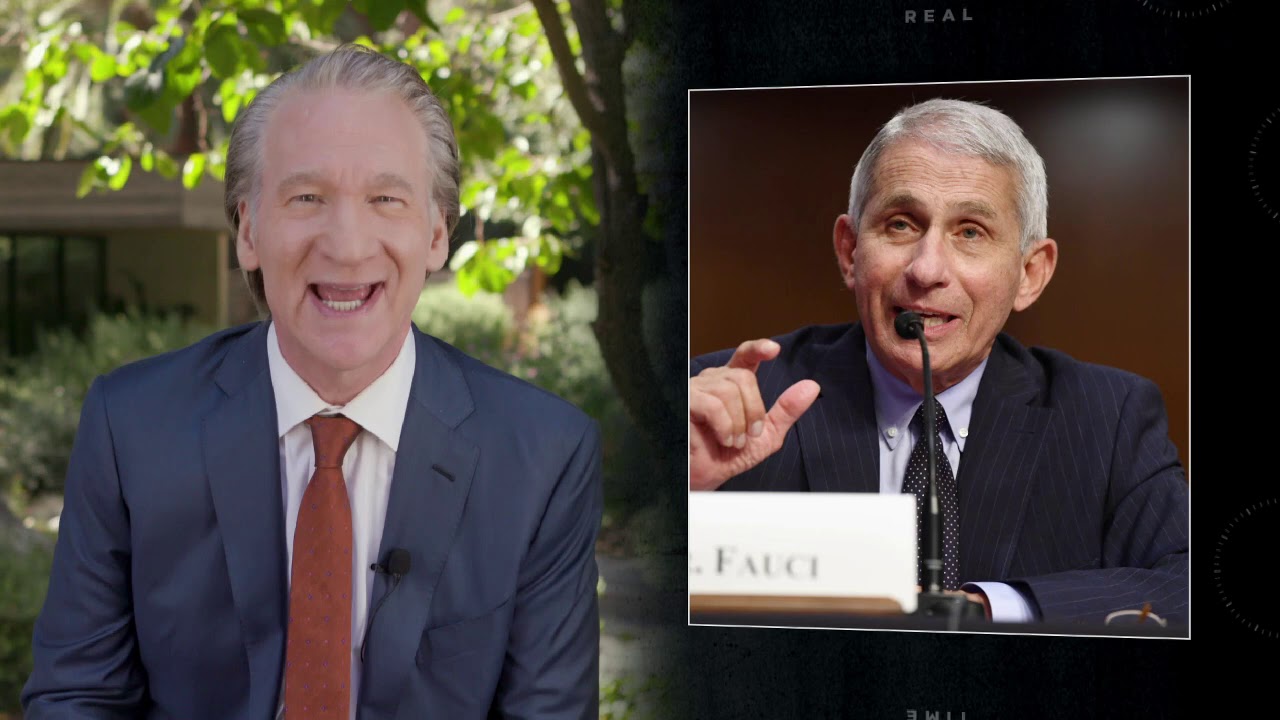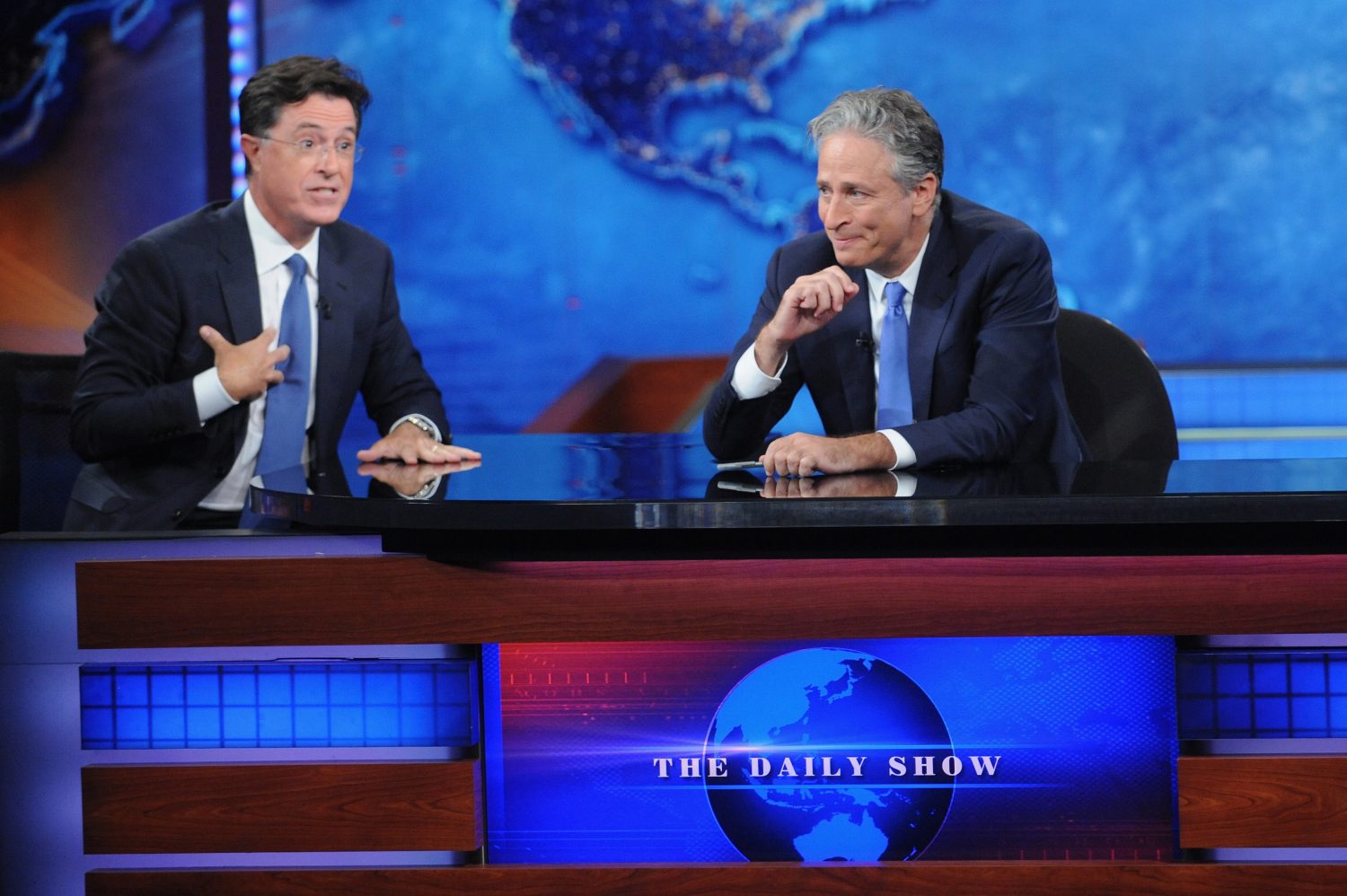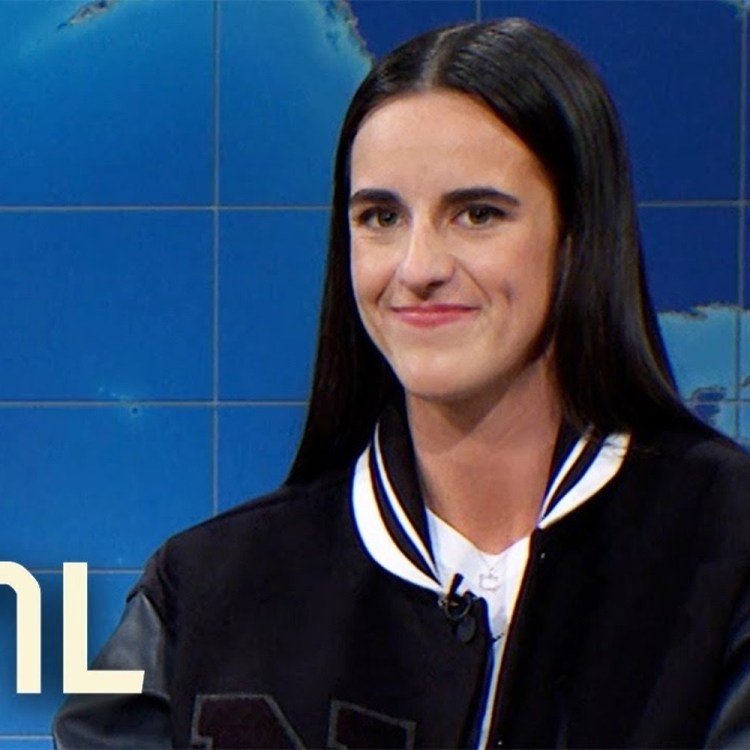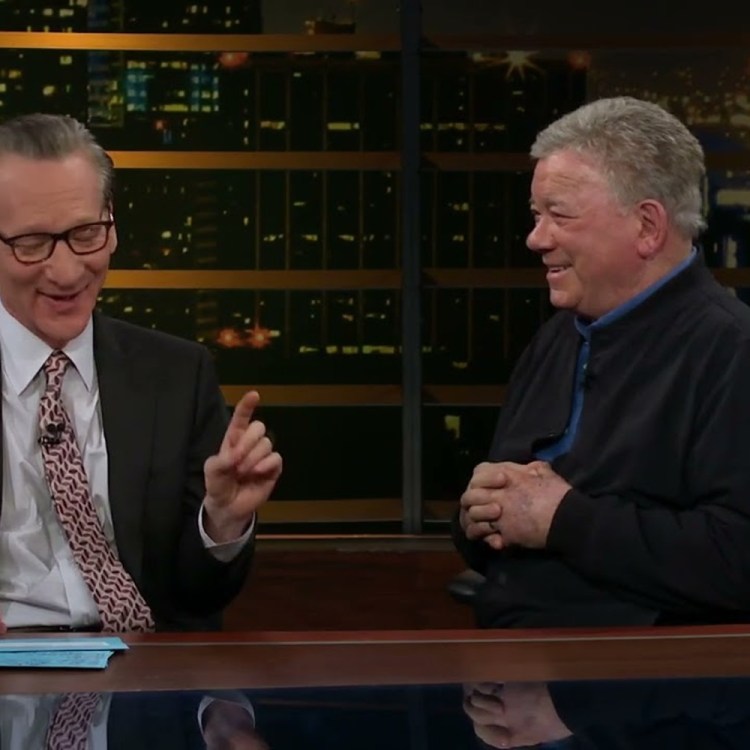“This is the last show from my man cave,” Bill Maher said in the opening monologue of Friday’s episode of Real Time With Bill Maher. Will the occasionally-bizarre clips of applauding audiences follow him to the studio for the next episode? Only Maher and his editor know for sure.
Given that the previous week involved fire tornadoes, the DNC and the Senate Intelligence Committee’s recent findings on Russia, there was no shortage of material for Maher to work with. He seemed more excited about the return to the studio than anything — which, he noted, poses less of a risk of stepping in dog crap — though it didn’t stop him from making a “WAP” reference. But even if Maher’s opening monologue seemed subdued, he was in top form as an interviewer, challenging several of his guests over the course of the night.
The first interviewee was former Ohio governor John Kasich, who had previously sought the Republican nomination for president and recently endorsed Joe Biden’s candidacy. Here, Maher seemed particularly focused, challenging Kasich without turning the corner into being fully argumentative. Specifically, Maher asked Kasich if he thought he would have endorsed Biden had he still been in office. “I can’t project back,” Kasich said — but he cited his expansion of Medicare when in office as being along similar lines of breaking with his party.
Maher followed up with another tough question, asking Kasich if he had any regrets about his actions as governor which might end up harming Biden’s run this year — including the removal of thousands of voters from the rolls for not voting frequently enough. He defended his record, while a relatively unamused Maher looked on.
The interview concluded with Kasich invoking his faith, which made it serendipitous that Maher’s next guests included a man of the cloth. The Reverend Dr. William J. Barber II, author of We Are Called to Be a Movement, and Thomas Frank, author of The People, No, comprised the panel for this episode. As Maher noted, both men share similar politics and have similar views on the American working class and the Democratic Party. All of which meant that the dynamic of Barber and Frank was less of a conversation and more of a relay race, with each man building on the other’s comments.At the center of their argument? There are working-class Americans whose votes could change the political landscape but aren’t being courted by the Democratic Party. Their frustration was palpable.
The episode’s final guest? Filmmaker Oliver Stone, whose memoir Chasing the Light was published earlier this summer. Maher summarized what he’d learned from the book: “Making movies is hard.” Maher asked Stone if he thought that he’d have difficulty getting any of his films made today; Stone responded that a significant number of them would be difficult to produce in 2020.
Stone’s recollection of seeking funding for Salvador and Platoon outside of the United States had strange echoes of the current era of international co-productions. Stone also argued that making films critical of American foreign policy, post-2001, was virtually impossible. Maher also brought up the Senate’s findings on Russian collusion, challenging Stone to comment on it. (Stone, you may recall, has a close relationship to the Putin regime.) “I’m not voting for Trump,” Stone said when asked about the election.
“You are one of the most fascinating people I get to talk to,” Maher said as the interview came to a close. “Fascinating” came off like a very diplomatic choice of words.
Maher’s “New Rules” segment brought the episode to a close. Maher’s commentary ventured in some unexpected directions, including a highly focused bit about nasal polyps. The segment concluded with Maher discussing the mainstreaming of QAnon (and revisiting his own claim to be the person behind the conspiracy). For as bizarre as QAnon can be, there’s also little a humorist can do with it besides just state its absurdity — and hope for laughter instead of dread.
Subscribe here for our free daily newsletter.
Thanks for reading InsideHook. Sign up for our daily newsletter and be in the know.
